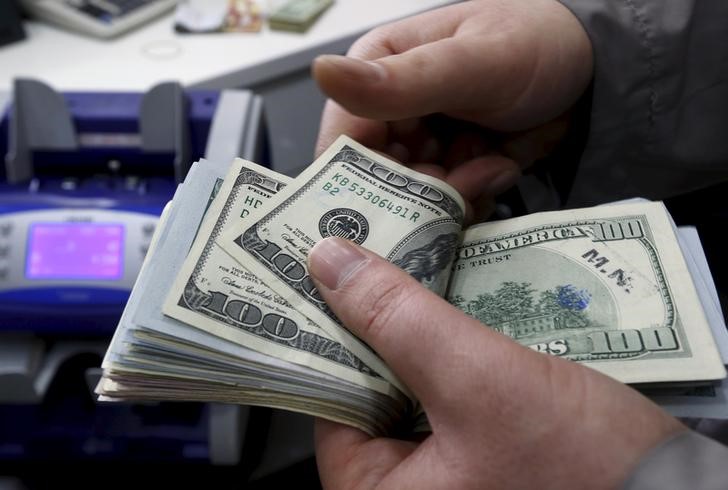Investing.com – The US dollar rose on Wednesday, with the safe-haven asset adding to sharp gains from the previous session as an Iranian missile attack on Israel escalated tensions in the volatile region.
At 03:45 ET (07:45 GMT), the Dollar Index, which tracks the greenback against a basket of six other currencies, was trading 0.1% higher at 100.969, after rising about 0.5% in the previous session, the biggest increase since September. 25.
The safe haven dollar is rising
Unrest in the Middle East escalated overnight as Iran launched a volley of ballistic missiles at Israel in retaliation for the recent assassination of Iran-backed Hezbollah leader Hassan Nasrallah and the Israeli deployment of ground troops in southern Lebanon .
Iran has said its attack is over unless further provocation, but Israel promised a response, potentially drawing the United States, its backer, into the unrest.
“Escalation in the Middle East has led to this [to] Markets are considering a greater risk of a full-fledged conflict in the region, which could also involve the US,” ING analysts said in a note.
The dollar also got a boost on Tuesday from a stronger-than-expected US reading, especially ahead of Friday’s much-discussed official monthly report.
“While ISM output was somewhat softer than expected and prices paid fell below 50.0, the Fed is very focused on the labor market, and the surprise rebound in job openings in August contributes to a bullish short-term scenario for the dollars. ,” said ING.
The most important economic release on Wednesday will be the September figure.
The euro stabilizes after a sell-off
In Europe, it traded broadly flat at 1.1067 after the biggest drop in almost four months on Tuesday, in the wake of further signs of cooling inflation in the euro zone.
Interest rates in the region fell below the European Central Bank’s 2.0% target in September, and traders will look to comments from a range of ECB speakers, including Vice President and Chief Economist, for further guidance on future monetary policy of the ECB.
Citigroup said in a note published on Tuesday that it now expects the ECB to cut rates by 25 basis points at its October 17 meeting, and expects subsequent cuts in December and early 2025 to take the key rate to 1.5. % by September 2025.
traded 0.1% higher at 1.3293, significantly lower than last week’s high of 1.3430, a level not seen since February 2022, with this week being a quiet week on the UK economic data calendar.
The yen is retreating due to interest rate uncertainty
rose 0.3% to 144.06 after newly appointed Japanese Economy Minister Ryosei Akazawa said on Wednesday that Prime Minister Shigeru Ishiba expects the Bank of Japan to make careful economic judgments when raising rates again.
The Bank of Japan’s July meeting released earlier this week also showed policymakers divided over how quickly the central bank should further raise interest rates.
rose to 7.0185 as trading in the yuan was quiet, with Chinese markets now closed until next Tuesday as the country celebrates Golden Week.


